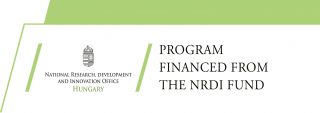Total budget: 2.000.000 HUF
Project manager: Dr. László Kovács
Duration:
from 1st January 2023. to 31st december 2024.
Summary:
Welfare conditions are in a global focus in animal production. Aggressive behavior in turkeys is a complex problem that can be caused by several factors. Injurious pecking is a serious concern both for commercial turkey production and for breeders. It is also a major animal welfare issue. There is a limited knowledge about the the multiple factors influencing the abnormal behaviour in turkeys. In the initial development of the aggressive behaviour, early lighting regimes and social facilitation may redispose for the problem. Other factors such as the availability of foraging material, diet composition, stocking densities, and group dynamics may also affect levels of this abnormal behaviour. Early detection and complex approach of the agressive behaviour are essential to minimise the losses in commercial and parent-stock flocks. To better suit the behavioural needs, any genetic attempts to adapt turkeys to perform less injurious pecking might be done in combination with environmental and dietary improvements. Feed isusually considered as one of the primary reason for aggressive behavior. Shortages of nutritive components of the feeds as Sodium,Chloride, Amino-acids, Protein and Vitamin-B levels as well as the poor quality of the drinking water should be considered as potential causative factors for aggressive behaviour. In commercial poultry husbandry, there are many approaches to optimize the production in order to reduce the economic loss caused by poor welfare at marketing age. As it is known, factors such as density, group size, space availability, maturation, lighting, feeding, and transportation can have effects on welfare of turkeys. However, to ensure an increased animal welfare of the birds as well as a good performance and reducing the mortality and condemnations, it is important to use further relevant indicators.

